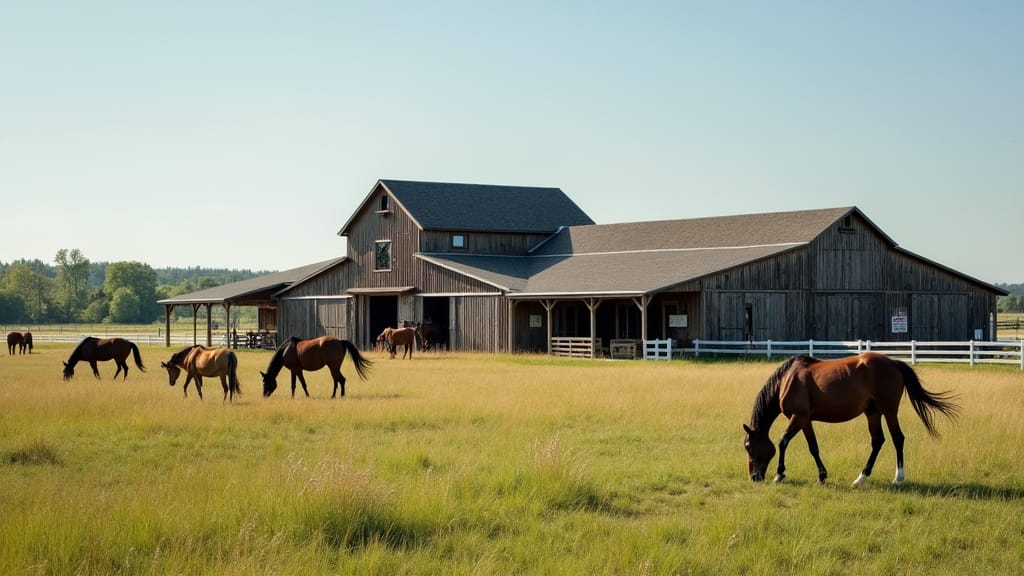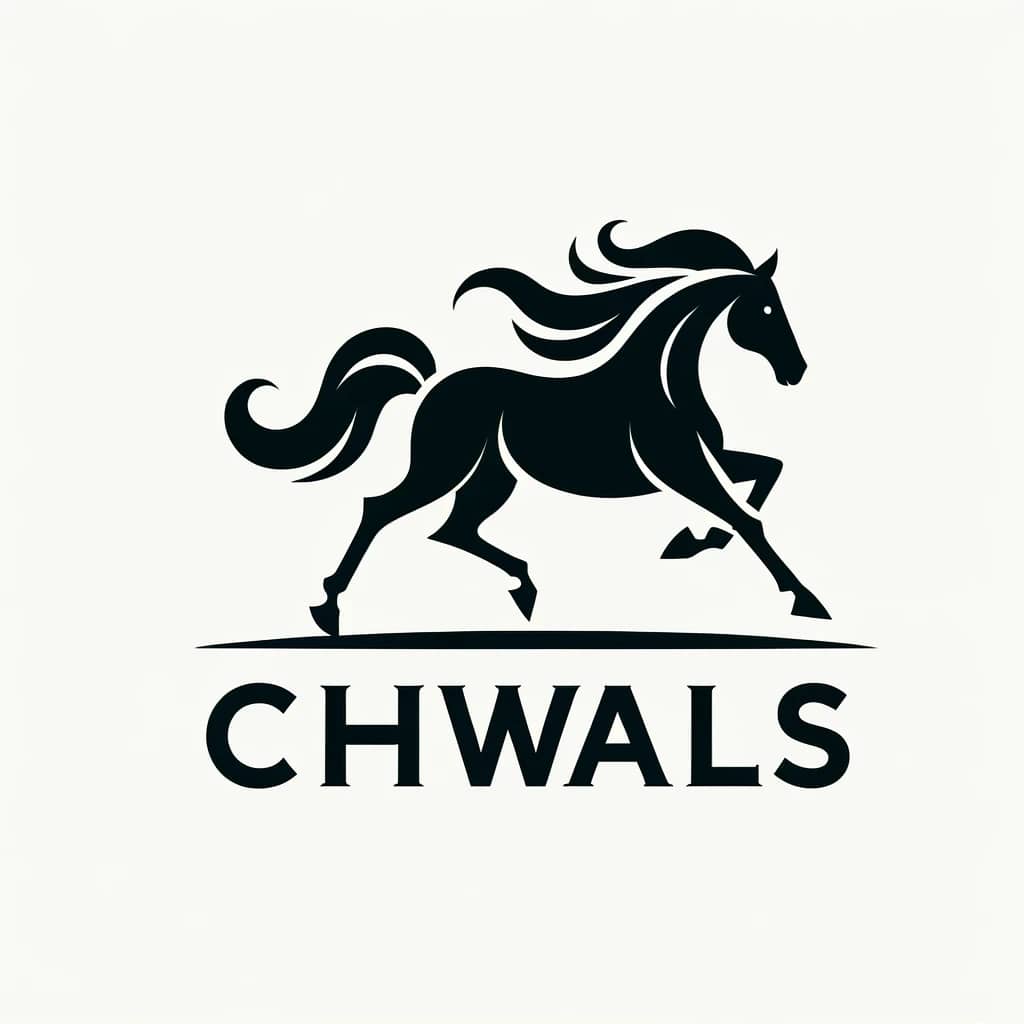
Insurance For Horse Owners And Businesses
Horse ownership and equine businesses carry special responsibilities. When working with these magnificent animals, understanding the need for proper insurance is very important. I have seen many owners and business operators benefit from knowing the ins and outs of insurance policies that protect both their horses and their way of life. In this article, I will explain the essentials of insurance for horse owners and businesses in a clear and practical manner.
Essential Insurance Coverage for Horse Owners
Insurance for horse owners doesn’t only protect your animals. It also secures your investments and ensures you have a solid backup plan. Over the years I have carried out detailed research and worked with several equine insurance providers so that I can explain the types of coverage available. When choosing the right type of insurance, knowing your specific needs is a good starting point. Below are some core coverage options you may want to consider:
- Liability Coverage. This protects you if your horse accidentally causes injury or property damage. For many owners, this coverage provides the reassurance that any unforeseen incident will be managed from a financial perspective.
- Mortality and Loss Coverage. Whether due to accidents, injuries, or illness, this coverage helps recoup losses when a horse is lost. This is especially useful for those who have invested in high-level training, breeding, or competitive sports performance.
- Property and Equipment Coverage. For those involved in equine activities as a business, protecting facilities like barns, riding arenas, and vital equipment is a priority. This coverage helps pay for repairs or replacements that might be needed after a natural event or unexpected accident.
- Medical and Veterinary Coverage. Similar to pet insurance, this policy may cover routine veterinary care, emergency treatments, or ongoing health maintenance, particularly in an era of rising veterinary expenses.
Each of these options serves a particular need. Depending on your circumstances, it is a good idea to speak with an insurance expert who is knowledgeable about the equine industry.
Understand the Insurance Landscape for Equine Businesses
Insurance requirements for people running equine businesses differ from the policies chosen by individual horse owners. Business owners need robust protection that covers multiple areas, from property and equipment to liability and employee coverage. A clear understanding of available policies helps equine businesses manage risk efficiently.
Many equine businesses today have mixed their services to include training, breeding, boarding, and even equine therapy. With such varied activities, the insurance needs are equally diverse. Common policies for businesses in this field include:
- General Liability Insurance. This covers claims arising from accidents or injuries that may occur on your property, which is very important for facilities open to the public or those that host events.
- Property Insurance. This helps cover damages to essential assets such as stables, arenas, and equipment. Businesses face risks from fires, natural disasters, or even vandalism.
- Workers’ Compensation. For businesses employing staff like stable hands or trainers, this policy ensures that employees are properly taken care of if an injury occurs on the job.
- Business Interruption Insurance. In case of a disaster that disrupts operations, this type of insurance can help offset lost income and cover ongoing expenses while you recover.
Researching these options has shown me that all-in-one coverage can be the difference between a quick recovery after an incident and enduring long-term financial strain.
Practical Steps to Secure Your Horse Insurance
If you are new to equine insurance, taking informed steps can simplify the process of finding the right policy. I have found that starting with a clear evaluation of your risks is essential. Here are several practical steps to consider:
- Evaluate Your Risks. Begin by looking at what you do on a daily basis with your horses. What hazards exist? Is there any risk of accidents or injuries, especially if your horses participate in high-risk activities like racing or jumping?
- Consult an Expert. Chat with an insurance advisor who specializes in equine policies. Their experience ensures that the advice you receive is tailored to your specific situation.
- Compare Quotes. Do not settle on the first quote that comes your way. Consider different policies and weigh the costs against the benefits. It can be useful to check customer feedback and understand the claim process for each provider.
- Review Policy Details. Read through the policy’s fine print carefully. Be sure you understand what is covered, what is excluded, and any deductibles that might apply. This reduces the chances of surprises later on.
- Plan for the Future. As your equine activities grow, your insurance needs may change as well. Regularly reviewing and updating your policy helps ensure it remains suitable as your circumstances evolve.
This step-by-step method has helped numerous horse owners secure the right type of coverage, saving them from common pitfalls and unexpected costs.
Important Factors to Consider Before Purchasing Coverage
Before you finalize any insurance policy, it is important to carefully consider several factors. I have often encountered situations where overlooked details later became problematic. Here are some points you should think about:
- Coverage Limits. Understand the maximum payout that the policy offers. Whether the money is needed for repairing damaged facilities or replacing a lost horse, ensure the limits will cover potential losses.
- Policy Exclusions. Make sure you know what the policy does not cover. Some conditions or events may be excluded, so ask for thorough explanations to avoid misunderstandings later.
- Cost vs. Benefit. While a lower premium might seem attractive, cheaper policies often come with higher deductibles or more restrictive coverage. It is really important to weigh the actual benefits that a policy offers against its cost.
- Claim Process. How claims are handled can be critical during a stressful event. Look into the insurer’s claim procedures and ask for examples or testimonials from other clients.
- Adaptability. Your situation can change over time. If you expand your business or invest in more valuable horses, you will want a policy that can adjust accordingly with minimal hassle.
Discussions in various forums and industry events have revealed that these practical considerations play a significant role in choosing the best insurance option.
Understand Coverage Limits
This is one of the very important considerations. If the coverage limits are too low, you might face significant out-of-pocket expenses even after a claim is processed. By carefully reviewing different scenarios, you can set appropriate thresholds that match your risk profile.
Clarify Policy Exclusions
Many policies list several exclusions that can affect your coverage. It is worth asking questions and requesting written confirmation of these details to ensure you are not caught off guard when filing a claim.
Balance Cost with Benefits
Finding the right balance between premium costs and how much coverage you receive is a common topic among horse owners. Sometimes, paying a higher premium might simplify the claims process and offer broader protection, while less expensive policies can lead to higher expenses during an emergency.
Advanced Tips for Managing Horse Insurance
Once you have the basics covered, there are a few advanced steps that will help you manage your insurance more effectively. These tips come from the real-life experiences of equine professionals and discussions with insurance providers.
Maintain Detailed Records. Keeping a log of your horses’ health records, past incidents, and veterinary care can really boost your claims process. Thorough records help back up any claim you file.
Regularly Update Your Coverage. As the value of your horses, equipment, and facilities increases, your policy should be adjusted accordingly. I suggest reviewing your insurance annually to ensure that it matches your current needs. This proactive step can make a big difference when dealing with unexpected events.
Establish a Relationship with Your Insurer. Building a strong rapport with your insurance provider can be beneficial. Over time, a trusted relationship can lead to quicker claim processing and more personalized service when you need expert advice.
Invest in Risk Management. Some insurers offer discounts if you take steps to lower risks on your property. For instance, installing modern safety features in your stables or investing in regular training for your staff might qualify you for reduced premiums.
These advanced tips are based on real-world experience. Many experienced horse owners and business operators have found that taking extra steps not only reduces hassle but also improves overall satisfaction with their insurance coverage.
Frequently Asked Questions
Below are some common questions regarding insurance for horse owners and equine businesses along with clear answers:
Question: What type of insurance is most important for personal horse ownership?
Answer: Many horse owners start with liability and mortality coverage. These policies help cover potential injuries, property damage, and the loss of a horse. It is important to assess your own risks before considering additional coverages.
Question: How does equine business insurance differ from personal horse insurance?
Answer: Equine business insurance is broader. It often covers property damage, general liability, and risks related to employees, as well as extra coverage for equipment and day-to-day business operations. Speaking with a specialist who understands the commercial angle of the equine industry can be a game changer.
Question: Can I update my policy as my needs change?
Answer: Yes, it is possible to adjust your coverage if your business grows or your personal circumstances change. Regular reviews and open discussions with your insurer can help ensure your policy remains current.
Question: What should I do if I need to file a claim?
Answer: Begin by documenting the incident with as much detail as possible through records and photographic evidence. Then, notify your insurance provider as soon as you can. A well-documented claim helps speed up the review and resolution process.
Wrapping Up
Horse insurance is a valuable tool for protecting your personal investments and business operations. It offers financial coverage in case of accidents, injuries, or property damage, ensuring you can manage unexpected situations without overwhelming financial strain.
Understanding the variety of coverages—from liability to property and medical care—is very important for anyone involved in equine activities. I have seen that taking a practical, informed approach when selecting a policy makes a significant difference over time.
By evaluating your specific risks, keeping thorough records, and maintaining an ongoing dialogue with your insurance provider, you lay a strong foundation that not only protects your animals and assets but also supports the long-term health of your equine business. It isn’t just about having insurance; it is about ensuring every aspect of your equine venture is secured so that you can focus on what you love: caring for your horses and growing your business.
This article has covered the key points that every horse owner and equine business operator should consider when choosing insurance. Taking the time to map out your risks and reviewing policies periodically will help you avoid pitfalls and support a smoother claim process if ever needed.
Remember, smart insurance decisions involve balancing cost with benefits and planning ahead. With the right coverage in place, you are better positioned to handle life’s uncertainties while enjoying the rewarding experience of working with horses.



